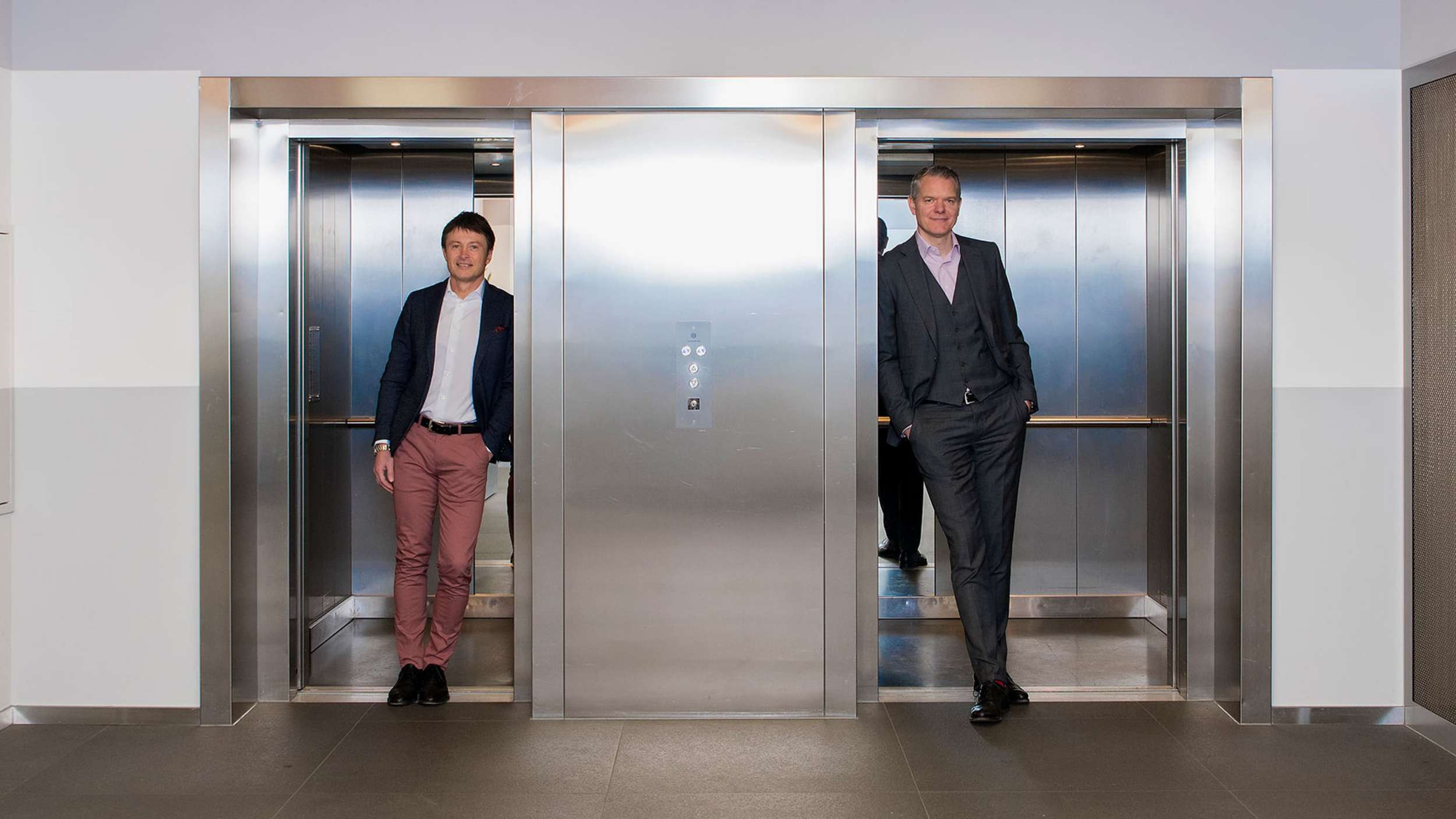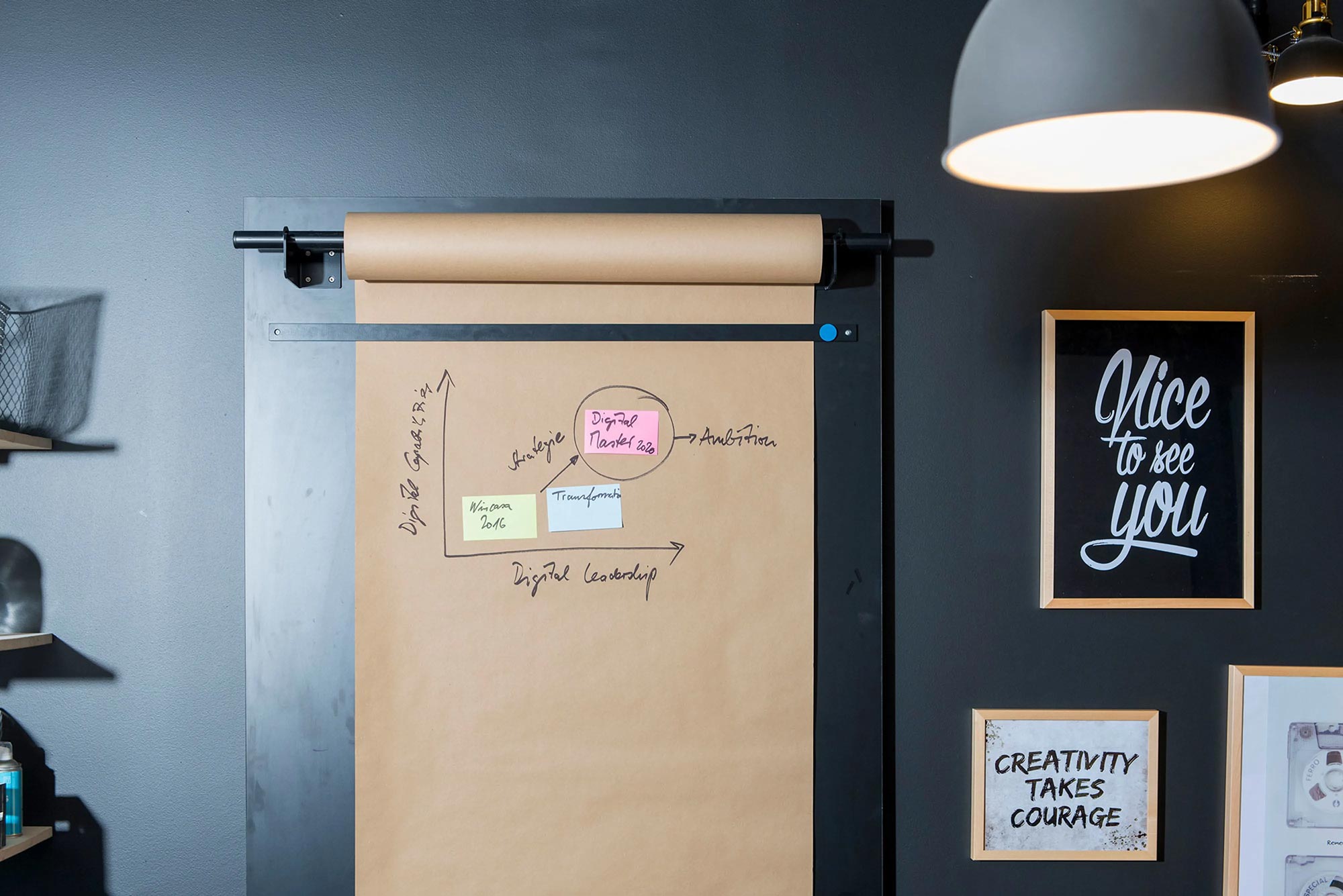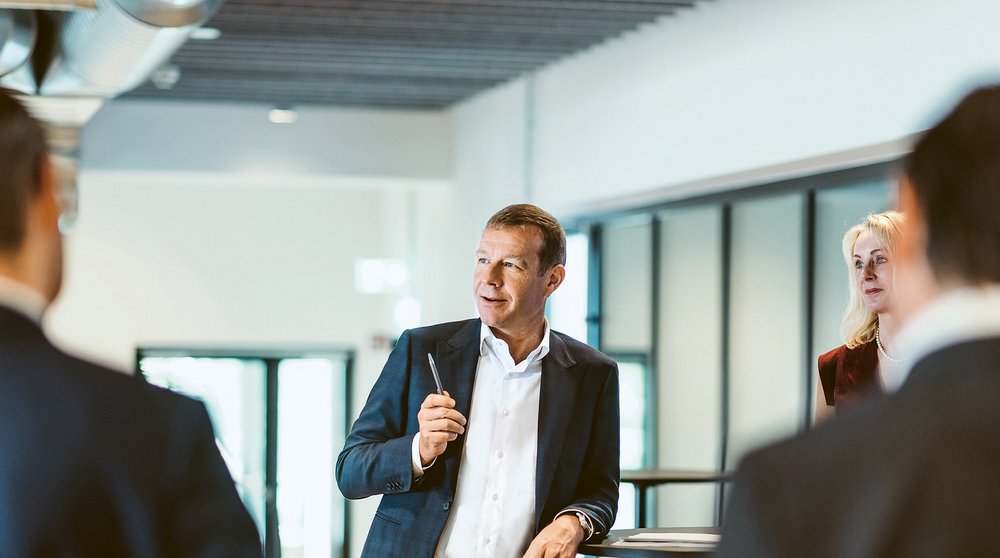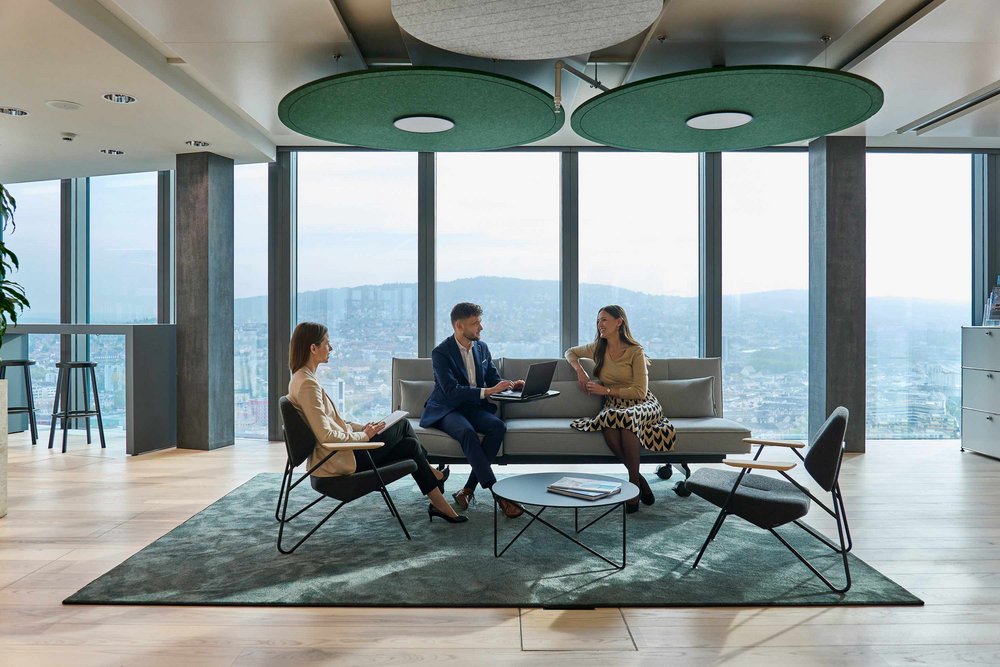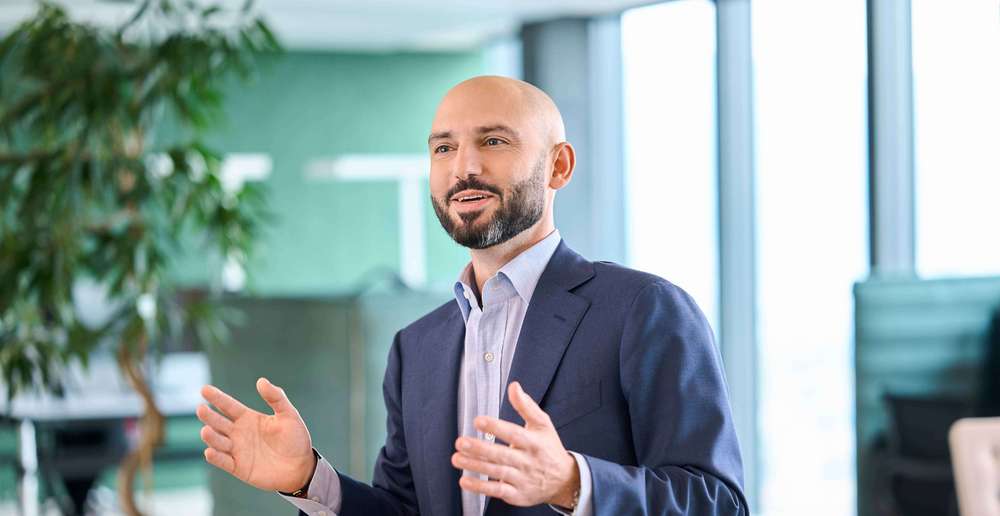Story Detail
Transformation – with no ifs, ands or buts
Sandro Principe, first of all, your title is noteworthy: Head of Transformation – and not Head of Digital Transformation. Is it simply another wording?
Sandro Principe: No, not at all. It’s completely intentional! Transformation includes considerably more aspects than merely digital. In particular, the project is cultural: We’re changing the entire process organisation. We are aiming to especially «transform» the mindset of our employees, in addition to changing processes and tools. Ultimately, transformation itself is not just the sole purpose, but should empower us as organisation – comprising a vast array of experts – to develop new business fields on an ongoing basis. And this is a benchmark with which we can measure ourselves.
Oliver Hofmann: We are striving to become «digital master» in our sector by the year 2020. Sandro Principe’s realm of «transformation» is also endowed accordingly. Roughly 40 employees are operating in this field and represented at the management level too. We are therefore sending a clear signal that our objective is binding and we are doing everything to achieve the goal.
Now what does the «digital master» objective mean in very specific terms?
Oliver Hofmann: Specifically, this means that as the leading integrated real estate services provider in Switzerland we are also assuming a trail-blazing role in terms of directing the focal point of our endeavours at clients: i.e. customer friendliness, services-oriented concept and mentality as well as touchpoints – as is expected today. We perceive our customers as being property owners as well as tenants. Our own employees are also one of the key elements for success, who provide our services day-to-day. Essentially it’s a stakeholder approach.
Sandro Principe: In a first step, we reviewed all our projects as to whether they are aimed at this objective, and if not we shut them down, plain and simple. We focused the resulting freed up resources on the tasks that will bring us closer to achieving our goal.
Hasn’t the focal point been directed at customers to date?
Oliver Hofmann: It was common in the sector 10 to 15 years ago that we received a fixed percentage of net rent as remuneration from property owners. Today, our sector is for the first time properly opening the door for customers and their needs. But we still harbour catch-up potential compared with other sectors.
Sandro Principe: Here, I can certainly apply everything I’ve been able to achieve in my career to date. In fact, at my last two employers, we had initially intensively tackled and subsequently analysed the issue of customer needs too. Thereafter, we addressed these needs and presented customers with solutions and services tailored to their requirements.
Oliver Hofmann: In my past activities in the realm of banking, I also worked in a sector that has progressed much further in this regard than we have advanced in the real estate services segment at present. Client portals that are currently the subject of discussion in our sector have been the standard in banking already for some time.
Sandro Principe: Our shopping centre apps are a good example of how we’re catching up with other sectors at the moment. End-customers can learn from the app all the important information regarding the respective stores, site maps or opening hours. In addition, shoppers moving around the centre also receive timely up-to-date offers and special discounts via iBeacon (i.e. small Bluetooth transmitter) – depending on where and when the shopper is particularly located. This isn’t just a totally new user experience for end-consumers, but also a great service for our tenants. Moreover, especially noteworthy for a provider of our size is the fact that the concept can be brilliantly developed in terms of multiplicity and scalability.
Oliver Hofmann: We should not forget the virtually accessible rental properties. Together with Matterport – the leading innovator in this segment – we have achieved virtual accessibility for the Nike Store in Sihlcity as well as for numerous apartments. This technology will now systematically flow into our daily routine operations step-by-step.
Is becoming a digital master a simple mission?
Sandro Principe: No, by no means! From a technological perspective, naturally some «low hanging fruits» can be picked at first. In this regard, Wincasa is like an Eldorado for me. But we will tread along the really right path together with our employees. In this context, it’s not just about getting to know the new tools, but also acquiring the capabilities that are indispensable at the present time and in the future.
Oliver Hofmann: Consequently, we began training all employees in the subject of digital skills already in 2017, getting them in shape for the digital transformation. In this way, we are systematically preparing the entire organisation and bringing all participants closer to realising what our objective means and knowing how they and our customers will reap benefits as a result.
Sandro Principe: "The Golden Circle Model". Why – how – what. Why are we doing it; how are we doing it and what are we doing.
Oliver Hofmann: We are perhaps even ahead of the market in other areas. Indeed, we are the first to offer tenants the option of retaining security deposits in the block chain. We are blazing new trails together with IT firm and inacta and Swiss Prime Site. The path is so new that it’s still unforeseeable if and how this very state-of-the-art, efficient and secure method will gain a foothold. But that’s also part of our focus as digital master: daring to venture forward with innovations and leading the way.
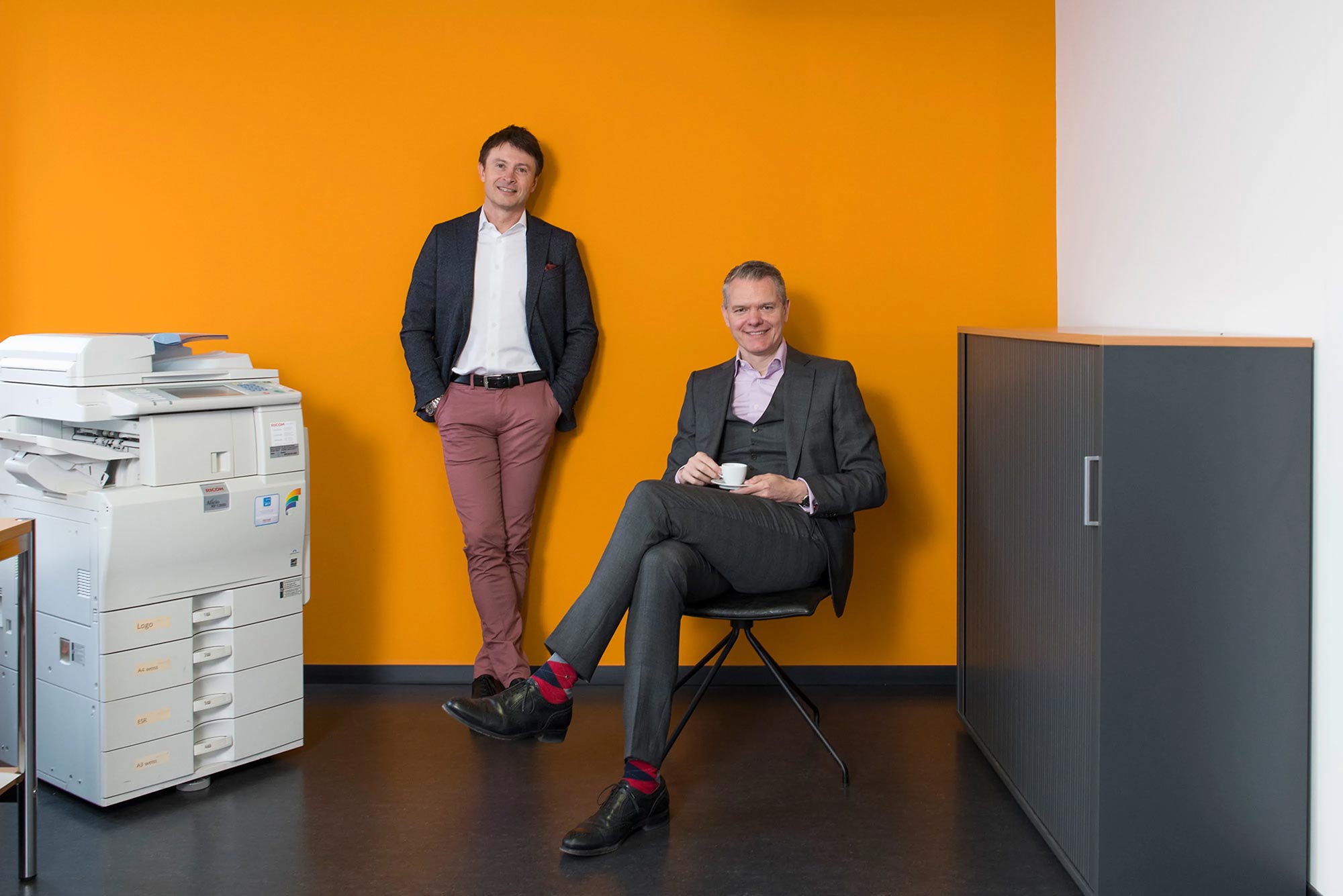
Spotting, testing and adoption of digital technologies sounds simple.
Sandro Principe: Yes, but it’s not.
Oliver Hofmann: We therefore approach the digital technologies issue with this consequence in mind. We know that the future will bring further changes, for which we not only aim to be prepared but also strive to initiate ourselves to a large extent!
Sandro Principe: Consider just for once the information at our disposal as market leader already at the present time. We currently count roughly 200,000 tenants that we manage, as well as around 235,000 rental properties ranging from single parking lots to shopping centres. Who knows more about assessing the Swiss market than us? And we aim to even further improve our analysis of the market in the future, exploiting the results for our customers as well. We are striving not just to become a better company, but particularly to develop new services and create added value for our tenants and property owners too.
Why an app instead of personal advisory services?
Sandro Principe: Apps make a lot of sense in certain aspects! In fact, the future indicates that we will be able to process numerous aspects of customer interaction with intelligent automation easily and cost efficiently, with advantages for all involved parties. Furthermore, we launched our Customer Value Centre at the end of 2017, a state-of-the art customer service centre that should be able to directly manage 70% of all enquiries by the end of 2018. In addition to automating the lion’s share of common interactions, new tools also provide the basis and time for offering the really important advisory activities and services at even higher level.
The course has been set on the customers’ front. How are you proceeding internally?
Oliver Hofmann: We are attempting to sail on a new course internally as well. We have completely transitioned to agile project management. In this form of organisation, the teams operate in so-called three-week sprints and are self-organised, which alleviates the management which, in turn, plans and executes its projects in three-year cycles.
Sandro Principe: We operate with various methods, including brain-storming rooms and kaizen boards. We will also soon start to more intensively communicate our projects and innovations. Editorial meetings with responsible parties from all business areas will be held in the future, at which attendees can report on their respective projects. This is an expression of the new corporate culture as well. Furthermore, internal communications already at present are increasingly shifting toward our social intranet introduced in autumn 2017 with digital workplace – an internal social platform that fosters horizontal and vertical corporate communications and within which employees can actively contribute.
Oliver Hofmann: As a passionate tennis player, I know one thing: No one lasts very long on the court without desire. But the same is true without technical training and conditioning too. We in management strive to exemplify this passion for transformation each and every day. Indeed, it’s the only way to succeed. Internal and external partners provide technical training to our employees. Now, we merely need the condition and perseverance in order to achieve our objective together by 2020!
Read more about Wincasa
